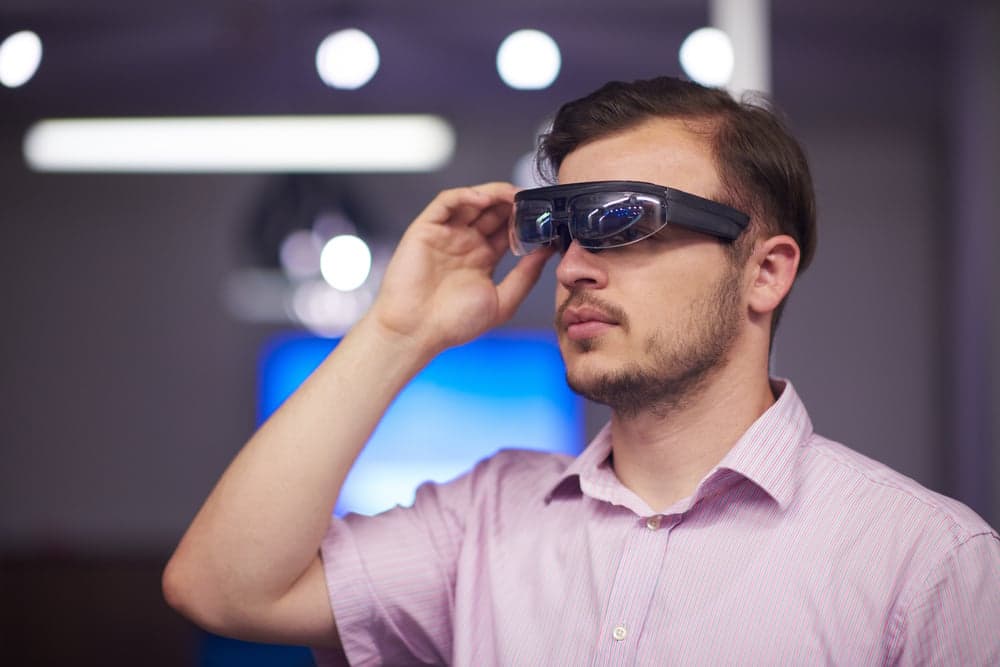Revolutionizing Education: The Power of VR Training in Practical Skills Development
Discover how Virtual Reality (VR) is revolutionizing practical skills development in education. Explore the benefits, challenges, and strategies of implementing VR training for enhanced learning.

VIG Learning Team

Transforming Education: Unleashing the Power of VR Training for Skills Development
Introduction
Virtual Reality (VR), once an elusive concept belonging to the realm of science-fiction and futurist musings, has now become a transformative force across numerous industries. Its influential and transformative power is particularly apparent in the education sector, where it is pioneering a new approach to practical skills development. This comprehensive guide delves into the role and potential of VR training within the educational landscape, explores the reasons behind its escalating popularity as a tool for experiential learning, and provides actionable insights on how your organization can leverage this cutting-edge technology to bolster practical skills development.
Unraveling the Impact of VR in EducationVirtual Reality, a technology that immerses users in a simulated environment, can replicate real-world scenarios or create entirely original, synthetic experiences. By offering a highly engaging and interactive learning platform, VR has carved out an invaluable niche in the sphere of education.
VR Training: Pioneering a New Learning ParadigmThe advent of VR training marks a paradigm shift from traditional learning methodologies.
It replaces passive information consumption with immersive, experiential learning. According to research conducted by the National Training Laboratory, retention rates for VR learning can reach a remarkable 75%, a stark contrast to the modest 5% achieved through lecture-based learning. This disparity underscores the efficacy of VR in amplifying learning outcomes.
The Role of VR in Practical Skills DevelopmentWhere VR truly excels is in the field of practical skills development. Whether it's a medical student practicing a complex surgical procedure, an auto mechanic diagnosing a virtual engine, or a firefighter navigating a simulated burning building, VR provides a safe, controlled, and repeatable environment for learners to perfect their skills.
Key Benefits and
Challenges of VR
Training
The Advantages1.
- Heightened Engagement:VR's immersive learning experience significantly boosts learner engagement and motivation.2.Improved Retention:*The interactive nature of VR facilitates enhanced information retention and recall.
- Safe Learning Environment:VR allows learners to practice skills in a risk-free environment, markedly reducing the probability of real-world mistakes.4.
- Cost-Effectiveness:*Despite potentially high initial setup costs, VR can lead to considerable savings in the long run by eliminating the need for physical resources.
The
Challenges
Despite its numerous advantages, VR is not without its challenges, including: 1.High Initial Costs:The cost of VR hardware and software can be a significant hurdle.
- Technical Glitches:Like any technology, VR can encounter glitches and technical issues that can interrupt the learning process.3.
- Physical Discomfort:*Prolonged use of VR can result in physical discomfort, including symptoms such as dizziness or nausea.
Best Practices for
Implementing VR Training
Commence With a Pilot ProgramInitiating a small pilot program can help better understand the technology and its impact on learning outcomes. This approach allows for necessary modifications and enhancements before a full-scale roll-out.
Keep Learning Goals at the ForefrontWhile the allure of VR can be captivating, it's vital to maintain focus on the learning objectives. The technology should enhance the learning experience, not overshadow it.
Provide Adequate SupportEnsure that learners have the necessary support to use VR effectively.
This support can encompass technical assistance and training on how to operate the VR equipment.
Strategies for Implementing VR TrainingA strategic approach is crucial for the effective implementation of VR training. Here are some strategies to consider: 1.
- Identify Suitable Use Cases:*Not all subjects or skills are amenable to VR training. Identify the areas where VR can add value and enrich learning.2.
- Collaborate with VR Experts:Teaming up with VR experts can prove beneficial in designing and developing effective VR training programs.3.Invest in High-Quality Equipment:*Investing in superior quality equipment can significantly enhance the VR experience and minimize the likelihood of technical issues.
Future Trends in VR
TrainingAs VR technology continues to evolve, we can expect further advancements in VR training. These include more realistic simulations, increased integration of artificial intelligence, and enhanced data tracking and analytics.
These developments will continue to augment the effectiveness of VR training, solidifying its position as an invaluable tool for practical skills development.
Conclusion
The transformative potential of VR in education is undeniable. It offers an engaging, interactive learning experience that can greatly enhance practical skills development.
While there are challenges to surmount, the potential benefits make VR training a worthy investment for organizations aiming to revolutionize their approach to learning. By understanding the technology, maintaining focus on learning goals, and employing a strategic approach, organizations can harness the power of VR to equip learners for the future.
- - Enhanced on 2025-07-22T17:52:45.
379Z -->
Ready to Transform Your Learning Strategy?
VIG Learning specializes in creating innovative, effective learning solutions that drive real business results. Let's discuss how we can help you achieve your training goals.